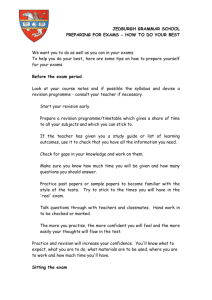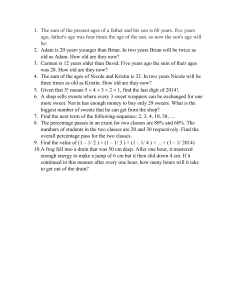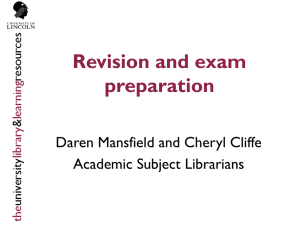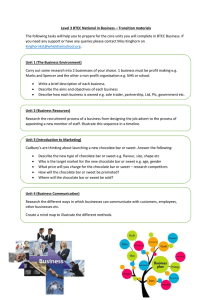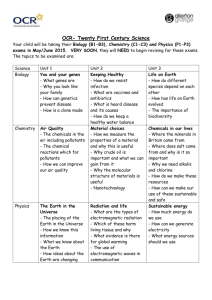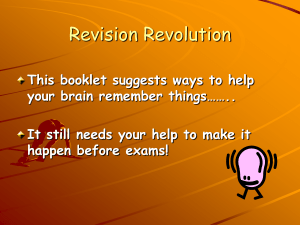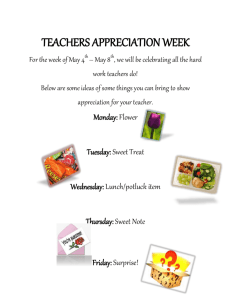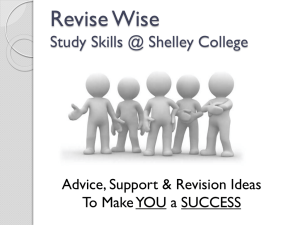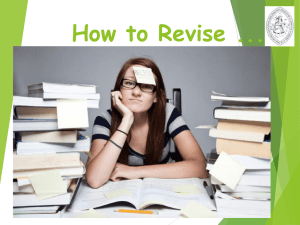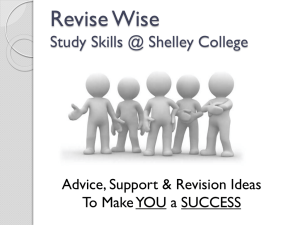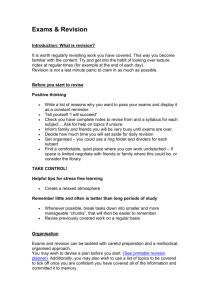COPING SUCCESSFULLY
advertisement
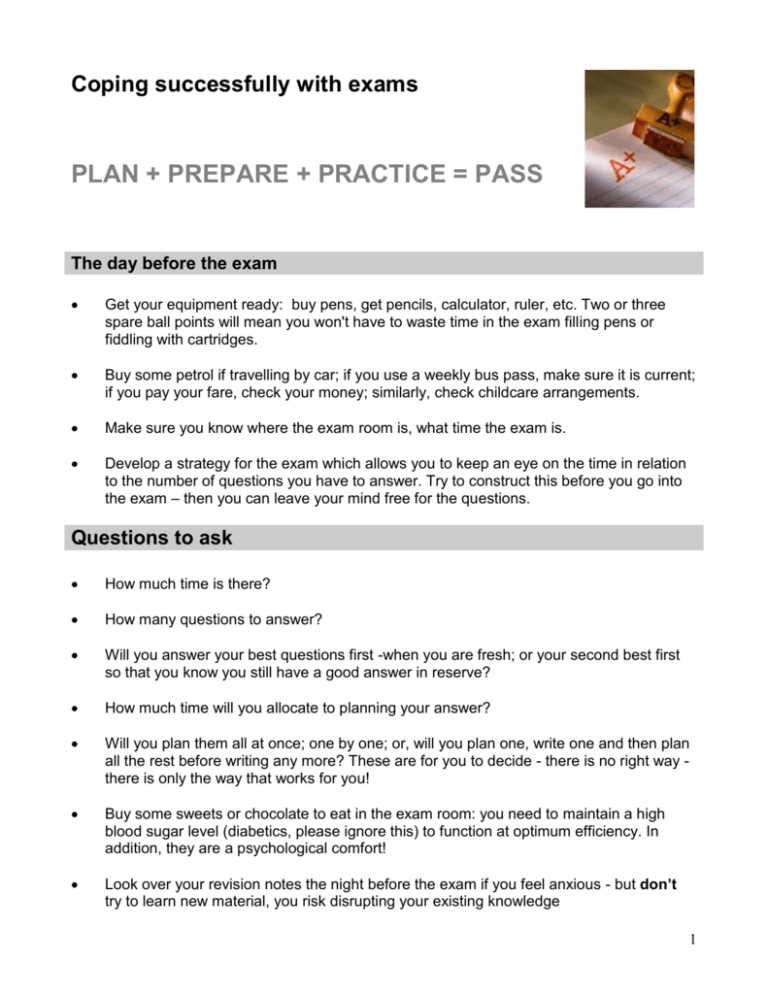
Coping successfully with exams PLAN + PREPARE + PRACTICE = PASS The day before the exam Get your equipment ready: buy pens, get pencils, calculator, ruler, etc. Two or three spare ball points will mean you won't have to waste time in the exam filling pens or fiddling with cartridges. Buy some petrol if travelling by car; if you use a weekly bus pass, make sure it is current; if you pay your fare, check your money; similarly, check childcare arrangements. Make sure you know where the exam room is, what time the exam is. Develop a strategy for the exam which allows you to keep an eye on the time in relation to the number of questions you have to answer. Try to construct this before you go into the exam – then you can leave your mind free for the questions. Questions to ask How much time is there? How many questions to answer? Will you answer your best questions first -when you are fresh; or your second best first so that you know you still have a good answer in reserve? How much time will you allocate to planning your answer? Will you plan them all at once; one by one; or, will you plan one, write one and then plan all the rest before writing any more? These are for you to decide - there is no right way there is only the way that works for you! Buy some sweets or chocolate to eat in the exam room: you need to maintain a high blood sugar level (diabetics, please ignore this) to function at optimum efficiency. In addition, they are a psychological comfort! Look over your revision notes the night before the exam if you feel anxious - but don’t try to learn new material, you risk disrupting your existing knowledge 1 Don’t panic if you can’t remember something, this is a normal happening - you have not ‘lost’ this material, you just can’t access it at the moment. It will probably come back on the day. Do have plenty of sleep the night before and do those things you know help you to relax - watch a video, read a novel, and listen to music. Set your alarm to give you plenty of time to get to the exam - allowing for traffic jams, disruptions to public transport etc - so that you stay relaxed. The exam day Arrive in good time. Avoid the crowds of students at the exam door if this will make you anxious. If you are early have a brisk walk until they let you in. Find your place. Set out your equipment. Unwrap sweets, break chocolate bars before the exam starts. Write your name/number on the answer book. Have a sweet now. Read the exam requirements carefully i.e. how many questions to be answered altogether; how many from part 1, part 11, etc. If you feel anxious and upset - write this on the exam booklet - it can help release the tension (but remember to score it out later). Practice your anxiety reduction techniques.* Ignore everyone else: those furiously scribbling away are panicking. Read through the question paper. Put a tick against all the 'possibles'. Choose your best ones. Eat a sweet. Start on your plan of action - are you going to answer your second best or your best first. Whichever one it is start planning, noting keywords, listing info, (single words, brief phrases), re-reading the question, planning the answer, numbering your points in the order in which you will write about them. Watch the clock. Eat another sweet. Start writing. In an essay style of exam answer your opening paragraph could cover key word definitions and concepts. The body of your answer will be derived from the numbered ideas in your plan – but remain open to other ideas which may occur to you as you write. A brief recap of your main points can be effective as a conclusion - don't let your argument die feebly! Reward yourself with another sweet. Watch the time. Continue with the other questions (either planning all, then writing; or planning as you go, then writing). Watch the clock. Eat between every question written. 2 After the exam: Don’t have a 'post-mortem' on the answers - these again can be depressing - other people will inevitably take differing approaches. Do forget about the exam - give yourself a chance to relax before getting in gear for the next one. After the final one renew acquaintanceship with friend/spouse/ family. Make an appointment to see the dentist (after all those sweets!). After a decent interval think back and ask yourself what you have learned that will be useful for the next time. Keep a record by filling in the below. REMEMBER - PLAN + PREPARE + PRACTICE = PASS RECORD OF LEARNING: REVISION & EXAMS REVISION: I found it useful to… For my next revision session I could… EXAMS: Before the exam I found it useful to… Before my next exam I could… During the exam I found it useful to… During my next exam I could… After the exam I found it useful to… After my next I exam I could… 3
